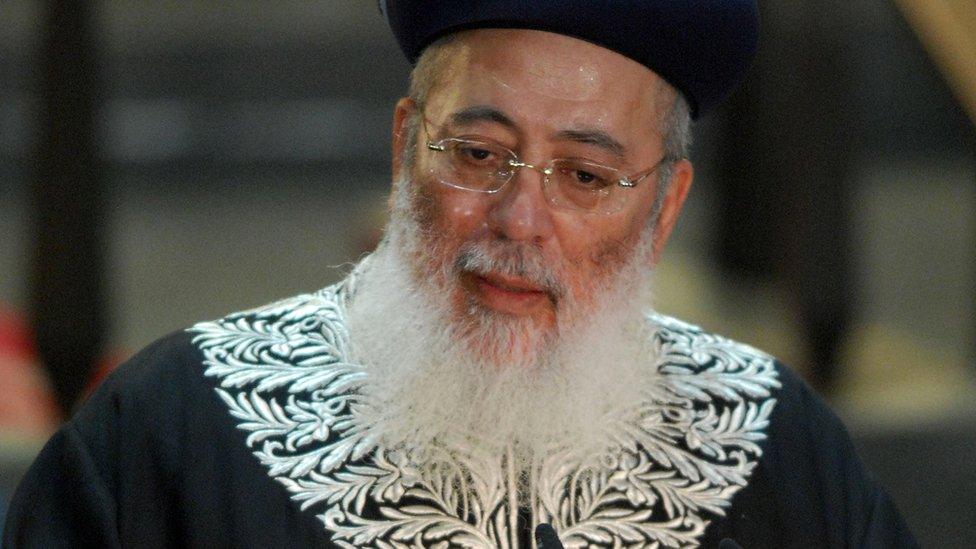Israel Chief Rabbi Amar condemned for 'gay death penalty' comment
- Published

Rabbi Amar said homosexuals should resist their "lusts"
Israeli political and community leaders have called for a top Jerusalem rabbi to be fired after he said Jewish law prescribed the death penalty for gays.
Sephardi Chief Rabbi Shlomo Amar told Israel Hayom newspaper homosexuality was a "cult of abomination", which the Torah "punishes... with death".
Several members of parliament have written to the prime minister to complain.
Rabbi Amar has previously been criticised for similar past remarks.
Last year he was rebuked for saying most people were "disgusted" by homosexuality, and calling Jerusalem's annual gay pride parade "an embarrassing phenomenon".
In an interview with , Rabbi Amar said it was "clear that it [homosexuality] is abomination. The Torah punishes it with death. This is in the first line of serious sins."
Rabbi Amar was quoted as saying homosexuality was a "lust" which could be resisted "as with any other kind of lust".
Although a fierce critic of homosexuality, in 2015 Rabbi Amar denounced the murder by an ultra-Orthodox Jew of an Israeli teenager at the city's gay pride parade as "a terrible act of blood-letting... nothing can justify it".
Jerusalem's gay pride parade has been a source of friction with the Orthodox Jewish community
While the Torah ordains the death penalty in theory for several types of "offences", strict conditions historically made it almost impossible to apply, according to Orthodox Jewish tradition.
In response to Rabbi Amar's latest remarks, several members of parliament and leaders of the lesbian, gay, bisexual, and transgender (LGBT) community, said he should be sacked.
"A public figure that puts Israeli citizens' life at risk using incitement and exclusion should be immediately fired," three MPs said in a letter to Prime Minister Benjamin Netanyahu.
An LGBT activist, Shirley Kleinman, made a complaint to police, accusing Rabbi Amar of incitement to murder.
"Let's try and ensure that this man will not remain in his key public position," Ms Kleinman said on her Facebook page.
"This is not an anti-religious issue... I do have an interest to protect my rights and your rights to live, and [to live with] dignity."